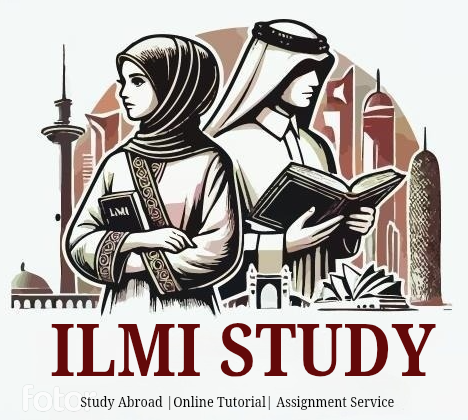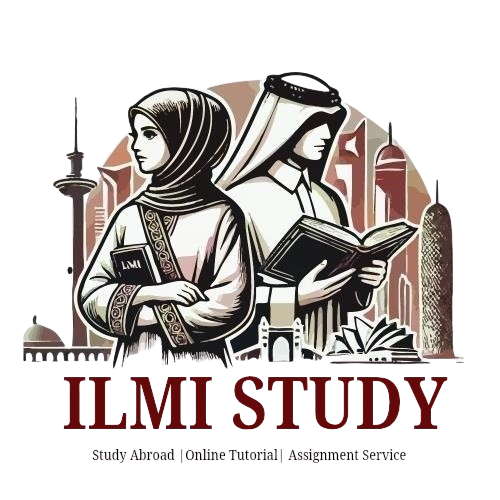In the world of academic writing, few tasks are as personal—and as misunderstood—as the reflective essay. Unlike research papers or argumentative essays, a reflective essay is not about proving a theory or citing endless sources. It’s about you—your thoughts, your experiences, and most importantly, your ability to learn from them.
Whether you’re applying to study abroad, working on a university assignment in Qatar, or preparing a personal statement for your academic goals, reflective writing is a valuable skill. At Ilmi Study, we often help students polish their reflective essays to show the depth of their personal and academic growth.
So, how do you write a reflective essay that actually reflects you?
Let’s break it down.
🎯 What is a Reflective Essay?
A reflective essay is a type of writing that explores your personal response to a particular experience, event, or concept. It’s where you analyze what happened, how it affected you, and what you learned.
Think of it as a journal entry—but with a clear structure, academic tone, and deeper critical thinking.
🧠 Why Reflective Essays Matter
Reflective writing is more than storytelling. It shows:
- Self-awareness: Are you able to recognize your strengths and weaknesses?
- Critical thinking: Can you evaluate your actions and learn from them?
- Personal growth: Have your experiences shaped your future decisions?
- Academic relevance: Can you connect theory to practice?
This is especially powerful for students applying for study abroad programs, scholarships, or postgraduate courses. Universities want to know who you are beyond grades—and a well-crafted reflective essay does just that.
✍️ Step-by-Step: How to Write a Reflective Essay That Actually Reflects You
1. Choose the Right Experience or Topic
Not every experience makes a good reflective essay. Choose something that made an impact on you—emotionally, intellectually, or practically.
Ask yourself:
- Did this event change my perspective?
- Did I learn something significant about myself?
- Did it challenge me in a way that helped me grow?
💡 Examples:
- Overcoming a major challenge in your academic life
- A volunteering experience that changed your outlook
- A time you failed—and what you learned from it
- How moving between cultures (like living in Qatar) shaped your identity
2. Use a Clear Structure: The Reflective Model
One popular method is Gibbs’ Reflective Cycle, which helps structure your thoughts:
1. Description – What happened?
2. Feelings – What were you thinking or feeling?
3. Evaluation – What was good or bad about the experience?
4. Analysis – Why did it happen that way?
5. Conclusion – What have you learned?
6. Action Plan – What would you do differently next time?
Using this structure ensures your reflection has depth, not just surface-level narration.
3. Be Honest—But Keep It Academic
Reflective essays require personal insight, but that doesn’t mean casual or overly emotional writing.
✅ Do:
- Use first person (“I” statements are fine)
- Reflect deeply and thoughtfully
- Keep a formal tone where needed
❌ Avoid:
- Rambling or venting
- Over-explaining things that aren’t relevant
- Using informal language or slang
At Ilmi Study, we help students strike the right balance between personal storytelling and academic professionalism.
4. Connect Your Experience to Learning
This is what separates a great reflective essay from an average one.
👉 Ask yourself:
- What theories or concepts relate to my experience?
- How did this shape my skills, beliefs, or decisions?
- How will this experience guide my future—especially in academics or career?
💡 Example:
If you’re reflecting on a group project that went poorly, connect it to theories of teamwork, communication, or leadership—and explain how you’ve grown from it.
5. Use Descriptive and Reflective Language
Your writing should paint a picture and explain the deeper meaning.
✅ Use:
- Descriptive verbs: “I explored,” “I realized,” “I discovered”
- Reflective phrases: “This made me question…”, “It helped me understand…”
Avoid vague sentences like:
- “It was a good experience.”
- “I learned a lot.”
Instead, be specific:
“This experience made me realize how much I rely on structure and deadlines to stay focused—a habit that shaped how I approach independent learning now.”
6. Craft a Strong Introduction and Conclusion
Your introduction should clearly state:
- The experience you’ll be discussing
- Why it’s significant
- What the reader can expect
Your conclusion should summarize:
- What you’ve learned
- How you’ve changed
- What this means for your future studies or career
📝 Tip from Ilmi Study: Many students from Qatar applying for master’s programs forget to include how the experience connects to their future goals. Always close the loop in your conclusion!
7. Proofread and Seek Feedback
No matter how personal the essay is, don’t skip editing. Check for:
- Grammar and spelling
- Logical flow
- Sentence clarity
- Repetition or off-topic details
Better yet, have someone else (like Ilmi Study 👋) read it with fresh eyes. We offer personal statement polishing and essay feedback sessions designed to bring out your best.
🧩 Reflective Essay Example Snippet
Here’s a quick sample (shortened version) to help you visualize:
During my second year of university, I led a fundraising event for a local charity. While I was excited to take charge, I underestimated how much planning and coordination it would require. At one point, I missed an important deadline that caused a delay in securing sponsors.
Initially, I felt embarrassed and frustrated. But reflecting back, I realized I lacked proper time management strategies. I’ve since taken steps to improve—using scheduling tools, asking for help when needed, and learning to delegate.
This experience taught me that leadership isn’t about doing everything yourself—it’s about building a team, planning carefully, and learning from your mistakes. These lessons continue to guide my academic projects and will be essential when I study abroad.
🌱 Final Tips to Make Your Reflective Essay Stand Out
✔️ Start early – Reflection takes time
✔️ Be vulnerable – But smart and structured
✔️ Show growth – Not just events
✔️ Make it relevant – To your academic or career goals
✔️ Seek expert feedback – Like Ilmi Study’s writing support
🎓 Reflective Essay for Study Abroad Applications in Qatar
If you’re applying for scholarships, personal statements, or master’s programs from Qatar, reflective writing is your secret weapon. Admissions officers want to know your why—not just your grades.
At Ilmi Study, we help students craft reflective essays that tell your unique story while aligning with what universities are looking for.
💬 Let’s Reflect on Your Journey Together
Whether you’re writing for a university assignment or preparing for a study abroad program, Ilmi Study is here to help. We offer:
✅ Reflective essay feedback
✅ Personal statement editing
✅ Study abroad guidance
✅ Academic support tailored for Qatar students

